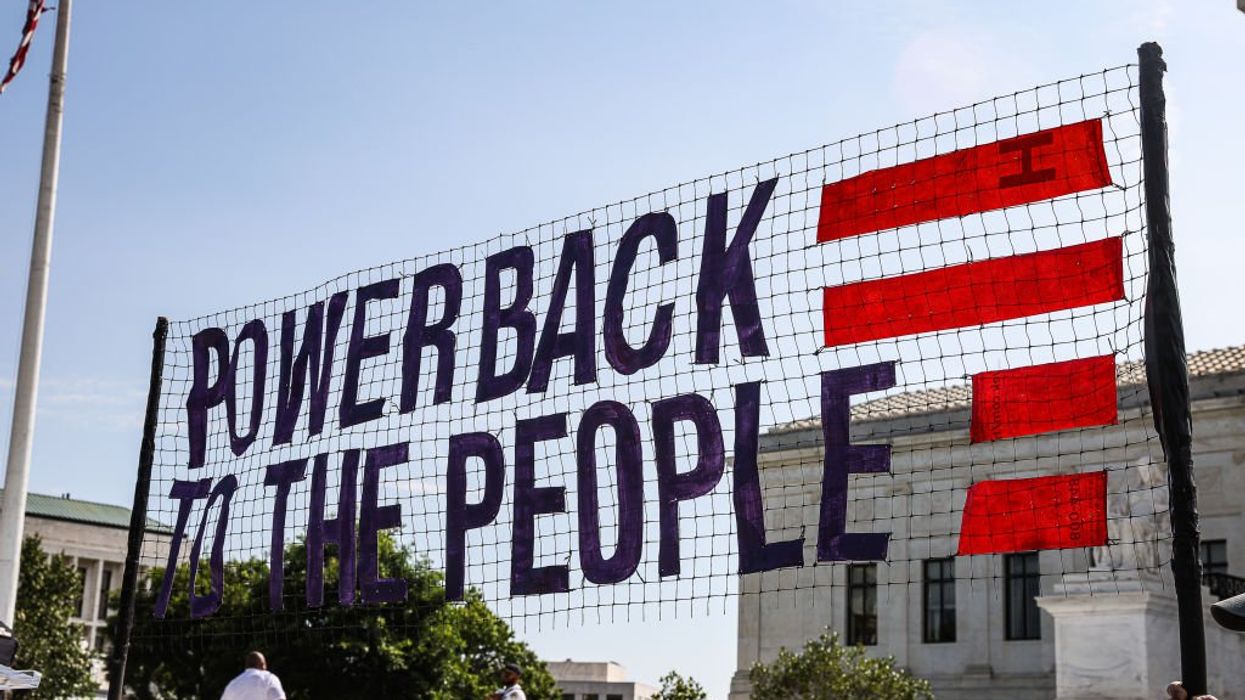Chevron deference is dead — and a new era of accountability begins

The U.S. Supreme Court last week made one of the biggest moves toward draining the swamp that we’ve ever seen, by eliminating a 40-year-old doctrine that never should have existed.
Here's what happened: A family fishing company, Loper Bright Enterprises, was being driven out of business because it couldn't afford the $700 per day being charged by the National Marine Fisheries Service to monitor the company.
The left has received its official narrative from politicians and corporate media: Ending Chevron deference will make us all less safe!
The trouble is that federal law doesn't authorize NMFS to charge businesses for this. The agency just decided to start doing it in 2013.
Why did the agency's leaders think they could get away with just charging people without any legal authorization to do so?
Because in 1984, in Chevron v. National Resources Defense Council, the Supreme Court decided that regulatory agencies were the “experts” in their fields and the courts should just defer to their interpretation of the law.
So for the past 40 years, federal agencies have been able to “interpret” laws to mean whatever they want, and the courts had to just go with it.
It was called Chevron deference, and it put bureaucrats in charge of the country.
It’s how the Occupational Safety and Health Administration was able to decide that everyone who worked for a large company had to get the COVID jab or be fired. No law gave OSHA that authority. The bureaucrats just made it up.
It’s how the ATF was able to decide a piece of plastic was a “machine gun.”
It’s how the Natural Resources Conservation Service was able to decide that a small puddle was a “protected wetlands.”
It's how out-of-control agencies have been able to create rules out of thin air and force you to comply, and the courts had to simply defer to them, because they were the “experts.”
Imagine if your local police could just arrest you, for any reason, and no judge or jury was allowed to determine if you'd actually committed a crime or not. Just off to jail you go. That's what Chevron deference was.
It was not only blatantly unconstitutional, but it also caused immeasurable harm to everyone. Thankfully, it's now gone.
Now if you spend any time on the internet or live within 1,000 yards of a progressive, you’ve no doubt heard some very intense screeching over the past few days, even more so than usual.
The left has received its official narrative from politicians and corporate media: Ending Chevron deference will make us all less safe!
Now those Big, Greedy Corporations™ will take us back to the dark days of pre-1984 America, when they would put shrapnel in our beef and plutonium in our milk!
You no doubt remember similar caterwauling from them back in 2017, when net neutrality was repealed. Thankfully, they’re as wrong now as they were then.
Putting aside the fact that companies typically have a vested interest in not killing off their customers, we still have federal and state laws in place against negligent and harmful acts.
There is, however, one way that corporations can get away with doing whatever they want, and it was actually strengthened by Chevron deference: regulatory capture.
When agencies can grant themselves total control and can pick winners and losers in the industry they’ve been assigned to regulate, the major corporations in that industry spare no expense to lobby politicians to put their cronies in charge of those agencies.
They capture those agencies, initially just to survive. And once they have control of those agencies, now they have total control.
They can grant themselves indemnity for any damage their products cause. They can even mandate the use of their product. They create costly regulatory hurdles that smaller competitors can't afford to comply with and then ensure agencies overlook their own violations of these hurdles.
Their cronies and lobbyists, who often swap roles, can go to Capitol Hill and push Congress for bailouts, subsidies, and other taxpayer-funded goodies.
Since Chevron deference began, corporations have gained more control over D.C., not less. In fact, Chevron v. NRDC was an example of regulatory capture.
In 1981, under pressure from heavily polluting companies like Chevron, the EPA reinterpreted the Clean Air Act’s definition of “source of air pollution.” This allowed companies to increase pollution from one source if they reduced it from another at the same plant.
The National Resources Defense Council sued in federal court, claiming that the EPA was violating the law by trying to redefine it, and the D.C. Circuit Court ruled in the NRDC’s favor.
In 1984, the Supreme Court ruled that the EPA, as the “experts,” could make these decisions.
Thanks to Chevron deference, regulatory agencies, and the megacorps that captured them, were in total control.
Again, thankfully, it’s now gone.
We haven’t even begun to feel the effects of this decision in the courts. It will be used, for years to come, to roll back federal agencies, and we'll all be better off for it. And that’s why the corporate media, and the politicians and progressive pundits they sponsor, are freaking out about it.
Source link

